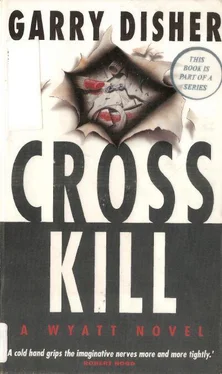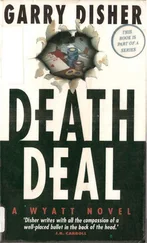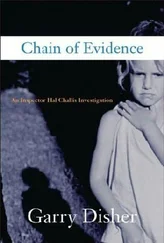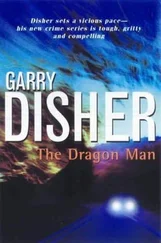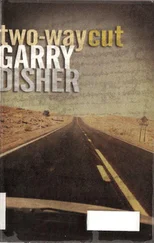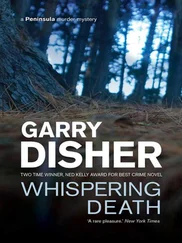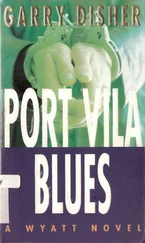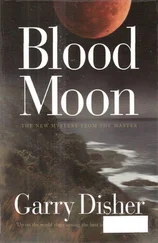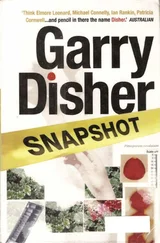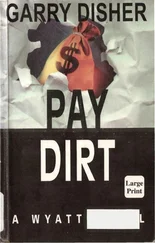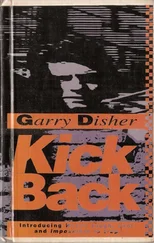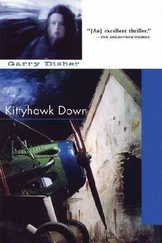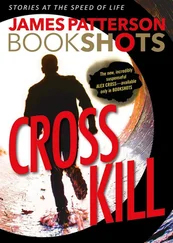Garry Disher - Cross Kill
Здесь есть возможность читать онлайн «Garry Disher - Cross Kill» весь текст электронной книги совершенно бесплатно (целиком полную версию без сокращений). В некоторых случаях можно слушать аудио, скачать через торрент в формате fb2 и присутствует краткое содержание. Жанр: Криминальный детектив, на английском языке. Описание произведения, (предисловие) а так же отзывы посетителей доступны на портале библиотеки ЛибКат.
- Название:Cross Kill
- Автор:
- Жанр:
- Год:неизвестен
- ISBN:нет данных
- Рейтинг книги:3 / 5. Голосов: 1
-
Избранное:Добавить в избранное
- Отзывы:
-
Ваша оценка:
- 60
- 1
- 2
- 3
- 4
- 5
Cross Kill: краткое содержание, описание и аннотация
Предлагаем к чтению аннотацию, описание, краткое содержание или предисловие (зависит от того, что написал сам автор книги «Cross Kill»). Если вы не нашли необходимую информацию о книге — напишите в комментариях, мы постараемся отыскать её.
Cross Kill — читать онлайн бесплатно полную книгу (весь текст) целиком
Ниже представлен текст книги, разбитый по страницам. Система сохранения места последней прочитанной страницы, позволяет с удобством читать онлайн бесплатно книгу «Cross Kill», без необходимости каждый раз заново искать на чём Вы остановились. Поставьте закладку, и сможете в любой момент перейти на страницу, на которой закончили чтение.
Интервал:
Закладка:
‘Same again, sir?’ the barmaid said.
Wyatt had been staring past her, sitting as still as a tombstone, his concentration absolute. He knew he couldn’t walk to Sydney, or swim or flap his arms or somehow materialise there, so he went through the options again, looking for holes.
He found one, blinked and smiled.
‘It moves, it breathes, it’s alive,’ the barmaid said.
Wyatt was aware of her watching him after that, polishing glasses, one eyebrow hooked, ready to banter with him. He guessed that she bantered with everybody, it was second nature to her, but something told him that banter was only part of her act this time. She seemed to like him and, as evening approached, he felt drawn to her. When finally he grinned, her face grew watchful and anticipatory. It was an engaging face, smart and humorous. She moved easily and well as she worked. An hour later he had a bed for the night.
Her name was Marion and she lived in cluttered comfort in an East Preston weatherboard house. The floor seemed to dip dangerously under Wyatt’s feet, and doors sprang open as he walked past them, but the central heating had kicked in an hour earlier and immense cushions and bright fabrics gave the house a cheery edge. A child’s hectic drawings were stuck to the refrigerator but Marion, brewing tea in the light of a candle and touching Wyatt’s arm from time to time as she moved about the kitchen, said nothing about having a child. She was frank and generous and uncomplicated, and had little to say to him at all.
Until, curled next to him on a sofa, she said idly, ‘Are you on the run?’
He stared at her. ‘What makes you say that?’
‘No car. You’re travelling light. You don’t strike me as completely broke, or too mean to pay for a motel.’ She looked at him carefully. ‘I’d say you genuinely want to be with me, but you also need a bed for the night, somewhere safe.’
He shrugged, and she put her hand on his chest as though to shut him up. ‘I don’t mind,’ she said. ‘I know you’re in trouble-I’m just trusting that none of it’s going to follow you here, into my house.’
Afterwards, when she fell instantly asleep in her big bed, he watched her for a while on his elbow and the strain of his chosen life began to look absurd to him.
She remained asleep when he got up on Wednesday morning. He showered, dressed, consumed toast and coffee and touched her neck goodbye, and she remained asleep through all of it, as though she felt safe. He pocketed her keys and left a note telling her where she could find her car. Then he heard the front gate scrape open.
Wyatt stiffened. Before he could act, a key moved in the front door lock and a man pushed a small child ahead of him into the house. If this was the boy’s father, he was a sulky-looking specimen, ginger-haired and sleep-bleary, wearing bright new stretch jeans that gave the appearance of strangling his genitals and stomach. His hair was uncombed, he was badly shaven, and he threw a gym bag and a bundle of sodden sheets onto the floor at his son’s feet.
‘See how your mother likes it for a change.’
Then he saw Wyatt and a look born of ignorance and vicious poverty soured his face. ‘Oh that’s fucking terrific. Terrific example for my kid.’
The man slammed the door and was gone. Wyatt and the boy stared at one another. Wyatt fitted a smile to his face but dropped it when he realised that the boy was gulping for breath. No more than eight years old, his thin chest heaving, his hand struggling to release the clothing binding his neck, the boy seemed suddenly close to death.
‘Medicine?’ Wyatt said.
The boy turned painfully, pointed to the gym bag. Wyatt zippered it open. Among the tangled shirts and pants he found an asthma spray, pale blue plastic the size of a man’s hooked thumb. The child snatched it from him, fitted one end to his mouth, sucked greedily. He stood for a moment, swaying, his eyes closed. Wyatt held him, one big hand on each side of the boy’s waist. New sensations swept through him briefly, feelings close to attachment and affection.
‘Okay now?’
The boy nodded.
‘Want to get into bed with your mum?’
The boy nodded again and Wyatt led him by the hand down the tilting hallway floor.
Thirteen
An hour later, Wyatt was waiting to catch the Sydney train. There was a risk that the Outfit would have staked out the Melbourne terminal, so he was waiting at an outer suburban station where the day train stopped. He would get off at Wodonga and transfer to a road coach for the remainder of his journey, finishing at Strathfield, not the central Sydney terminal. He waited near the end of the platform. If something didn’t look right, if something spooked him, he could lose himself among the sheds, wagons and stacks of rotting equipment in the shunting yards.
The Sydney train drew in and he found his seat. He dozed through the long morning, his collar turned up, his face turned to the endless flooded plains and farmland outside the window. His ticket was punched. He didn’t look at the conductor but sat, forbidding and still. No one spoke to him. No one wanted to speak to him.
The coach from Wodonga drew in to Strathfield at 9.15 pm. Several people alighted with him. He waited for his bag and then joined the knots of people milling on the footpath. He wasn’t stopped or accosted. No whistles or shouts or hands reaching out to spin him around.
He walked slowly away from the building, waiting for the cars and passengers to clear. Something about the air buoyed him up. It was risky, careless, an enlivening Sydney smell. When he thought the way was clear, he walked back. A lone taxi was waiting at the rank.
‘Thought I’d missed out,’ the driver said as Wyatt got in.
‘Must be your lucky night,’ Wyatt said. Luck seemed to be in the air. He could smell it, even if he told himself that he didn’t believe in it. ‘Newtown,’ he said.
‘Newtown,’ the driver said, clearly baffled as to why Wyatt hadn’t taken the coach to the central terminal.
They passed through leafy red-tile suburbs. The camphor laurels were flowering. A couple of skateboarders, swift shapes in the moonlight, plunged down the sloping streets and brassy foreign cars darted through the traffic. Streets twisted, heaping the suburbs over small, distinct hills, and Wyatt felt invigorated after Melbourne’s flat reaches. He breathed in and out and sank into his seat. ‘Anywhere along here,’ he said when they got to Newtown. He paid the driver and got out.
He walked through to Broadway. The footpaths on either side were crowded with people leaving restaurants, pubs and takeaway joints. A couple of greengrocers and video libraries were open and he edged past a drunken group bargaining good-naturedly with a doorstep jewellery vendor, fingering the trinkets laid out on black velvet. The address Rossiter had given him was a hotel called the Dorset and he could see it a block away.
When he reached the all-night cafe opposite the Dorset he realised how hungry he was. He went inside and claimed a stool at the window bench. ‘Foccacia and coffee,’ he said, and sat down to eat and watch. The watching was habit. He wasn’t expecting trouble in the Dorset.
Thirty minutes later, convinced the place was clean, he paid his bill and crossed the street. The Dorset’s massive front door opened onto a room the size of a tennis court. At one end a set of padded armchairs faced an empty fireplace and an ancient television set. The picture was rolling and the sound was off. At the other end was a highly polished reception desk next to a broad staircase. There were key tags dangling from half of the dozen or so pigeonholes behind the desk. The woman on duty was smoking and flicking through a magazine, like Basil Fawlty’s wife. Under the odour of her cigarette Wyatt could smell furniture polish. The place was worn and old, he noticed, but solid and cared for. The ceiling was low and there were bulky pillars at intervals through the vast room. Thick paint had been splashed on the walls. The floor gleamed darkly.
Читать дальшеИнтервал:
Закладка:
Похожие книги на «Cross Kill»
Представляем Вашему вниманию похожие книги на «Cross Kill» списком для выбора. Мы отобрали схожую по названию и смыслу литературу в надежде предоставить читателям больше вариантов отыскать новые, интересные, ещё непрочитанные произведения.
Обсуждение, отзывы о книге «Cross Kill» и просто собственные мнения читателей. Оставьте ваши комментарии, напишите, что Вы думаете о произведении, его смысле или главных героях. Укажите что конкретно понравилось, а что нет, и почему Вы так считаете.
